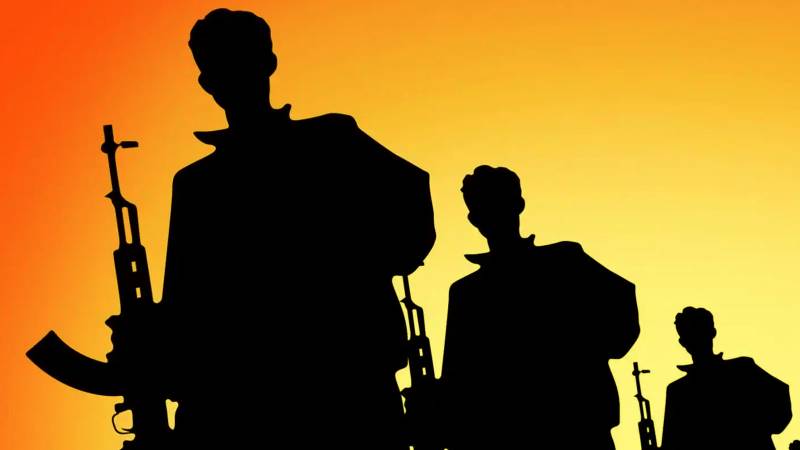
The recent announcement that a faction of the Lashkar-e-Jhangvi (LeJ) Karachi chapter, led by Naeem Bukhari's companions, has merged with the Tehreek-e-Taliban Pakistan (TTP), has raised serious concerns among security experts and officials. This strategic alliance could pose a significant threat to Karachi's fragile stability, a city that has largely avoided the widespread violence seen in the regions of Khyber Pakhtunkhwa and Balochistan.
On September 6, the TTP, through its Umer Media channel, announced that all members of Bukhari’s network had pledged their allegiance to TTP chief Mufti Noor Wali. Hafiz Qasim Ghazi, the leader of Bukhari’s faction, led the group’s formal merger with the TTP. The TTP also called on other jihadi/militant groups in Karachi to follow suit.
Bukhari, whose real name is Ata-ur-Rehman, was a prominent LeJ leader with close ties to Al Qaeda. He was arrested in 2016 alongside two other high-profile militants during a major operation by Pakistani security forces. One of the arrested militants was Farooq Bhatti, alias Musanna, from Al Qaeda in the Indian Subcontinent (AQIS); and another was Sabir, alias Munna Bablu, LeJ’s Karachi chief.
It is unclear whether Hafiz Qasim Ghazi is the same individual as Hafiz Qasim Rasheed, an LeJ figure whose arrest by the Counter-Terrorism Department (CTD) was reported last October, just months after his release from prison due to weak prosecution.
The timing of the LeJ-TTP merger coincides with TTP’s claim of responsibility for the killing of senior CTD officer Ali Raza in Karachi on July 7. Raza had played a key role in counter-terrorism operations targeting both the TTP and the LeJ. With the TTP taking credit for the assassination, it may indicate a coordinated effort involving Bukhari’s faction, claim experts.
A senior Karachi intelligence official said the merger could pose a renewed threat to Karachi’s stability. “The killing of Raza and the integration of Bukhari’s group into the TTP might be linked. This alliance may strengthen both groups in the city,” said the official, who spoke on the condition of anonymity.
A Strategic Shift
The LeJ-TTP alliance is part of a broader trend under TTP chief Mufti Noor Wali, who has been working since 2020 to unify splintered militant groups. Since then, over 60 factions have joined the TTP, including smaller jihadi groups and disaffected militants, from across the country.
Among those groups are elements of AQIS and another faction of LeJ that operates under Maulvi Khush Muhammad Sindhi, which aligned with the TTP in recent years.
While Karachi has remained relatively stable compared to conflict zones like Khyber Pakhtunkhwa and Balochistan in recent years, the TTP's resurgence, bolstered by LeJ militants, could threaten that stability, experts say.
The TTP and LeJ have a long history of operating in Karachi, with the TTP using the city as a base after fleeing military operations in the tribal areas in 2009. Over the years, the TTP became entrenched in the city’s complex web of criminal, ethnic, and political violence, running extortion rackets and attacking security forces.
However, the TTP’s influence in Karachi diminished after a large-scale security crackdown in 2014, following its assault on the Karachi airport. Since then, major TTP attacks in the city have been rare, with notable exceptions such as the 2023 attack on the Karachi police headquarters and Raza’s killing in July this year.
In the past, LeJ has maintained an organised network in Karachi and was particularly known for sectarian violence targeting the Shia community. Analysts believe that the group’s decision to align with the TTP may signal a strategic move to regain lost ground by leveraging TTP’s resources and operational networks.
Interviews with law enforcement officials suggest the merger could revitalise both militant groups in Karachi, which had been weakened by the arrests of key leaders. “Bukhari’s arrest damaged LeJ’s structure, and joining the TTP may be an attempt to reorganise,” a security official said.
The LeJ-TTP merger signals a potential shift in Karachi’s security dynamics, with law enforcement agencies likely to face new challenges as the groups attempt to re-establish themselves in the city.
In January, the TTP announced Mufti Saad as its chief and Javed Ustad as its deputy chief for Karachi. TTP chief Mufti Noor Wali has also served as the group's chief for Karachi in the past.
The resurgence of militant activity in Karachi underscores the delicate nature of the city’s peace, which could unravel if extremist groups regain strength.

